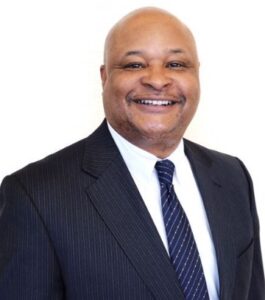CHARLESTON, W.Va. — The leader of a faith-based non-profit organization and Charleston church says he wants Gov. Jim Justice to call lawmakers in for a special session to address issues of discipline in West Virginia schools.

Rev. Matthew Watts, pastor at Grace Bible Church and leader of the Hope Community Development Corporation, told 580-WCHS Thursday significant steps need to be taken in order to prevent more students from being punished for bad behavior.
“It is unrecognized, it is unaddressed, and it is not fully understood. In my opinion, it is the most significant unaddressed issue in the state of West Virginia and nationally,” Watts said.
Watts’ remarks came after the state Department of Education on Wednesday released new data regarding discipline incidents including the number of in-school and out-of-school suspensions among K-12 students in 2022.
The data shows more than 28,000 students were suspended last year and that most of those students were either Black, disabled, homeless, in foster care or came from low socio-economic families. The average student that was suspended in 2022 lost about six days of classroom instruction.
Watts said it’s an issue he’s known about for years; however, the statistics that didn’t involve race surprised him.
“It wasn’t just about race, but also there’s a socio-economic component to it,” he said. “You’ll find that minority students were along with low-income students.”
According to the data, about 20 percent of Black students were suspended at least once last school year compared to 10 percent of white students. There were 14 percent of low-socioeconomic status students who were suspended compared to 7 percent of students who come from families with higher incomes. About 24 percent of foster care students were suspended compared to 10 percent of students who are not in foster care. There were 17 percent of homeless students who were suspended versus 11 percent of housed students. Nearly 15 percent of disabled students were also suspended compared to 10 percent of those who don’t have a disability.
A proposal discussed at Wednesday’s BOE meeting highlighted the need for a statewide school discipline dashboard where all 55 county school systems can track suspensions and discipline incidents in real time.
Watts said the dashboard can help identify schools that are disciplining based on race and other factors.
“The only way to reduce school discipline suspensions is really on a school-by-school basis,” he said. “That’s what the dashboard would do. It would provide local parents, local community people to be able to see in real time what was happening with disciplines and suspensions in their respective schools.”
Watts said if students get suspended a lot, some of which are repeat offenders according to the WVDE data, those students are more likely to end up incarcerated, not find a good job, leading to other problems later in life.
“Student school suspensions is a trigger that starts many young people on a downward path that results in them living perpetuate in poverty, in many cases, in the criminal justice system,” he said.
Part of the issue is that not enough resources are available to families in marginalized communities, Watts said. Being a pastor on Charleston’s West Side, a predominately Black community, Watts said he knows the struggle parents face on a daily basis and that education starts in the home.
“The most marginalized families are the families that have the highest poverty rates, that have the lowest resources. We know that poverty is an underlying condition that puts families at risk, students at risk and entire communities at risk,” Watts said. “We have to look at what can we do to stabilize and to strengthen families.”
In addition to a special session, Watts is also calling for a statewide summit to bring educators, lawmakers, faith-based leaders and other community leaders together to find solutions.
Watts applauded state Board of Education President Paul Hardesty for recognizing the problem at Wednesday’s meeting. Both Hardesty and Watts called the discipline issue in West Virginia schools “a crisis” and that it is leading to poor outcomes, especially on standardized testing.
“We have a problem of epic proportions. It’s no wonder we’re in a position we are on proficiency,” Hardesty previously told board members.
WVDE officials said training will available this summer to principals, assistant principals, administrators, teachers, school research officers, local school board members, community members and others in hopes of changing school culture and providing more social-emotional support to students.
The department is also going to recommend policy changes, including ending zero-tolerance discipline policies, strengthening due-process implementation, revisiting four different levels of discipline and encouraging alternatives to suspensions and expulsion.


